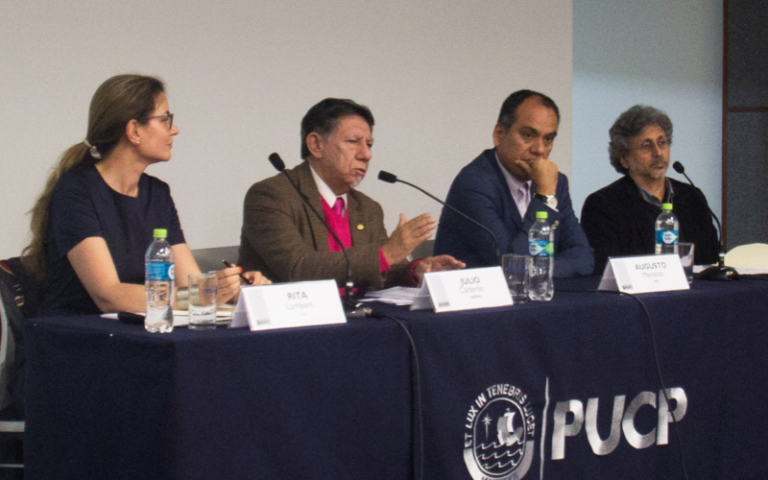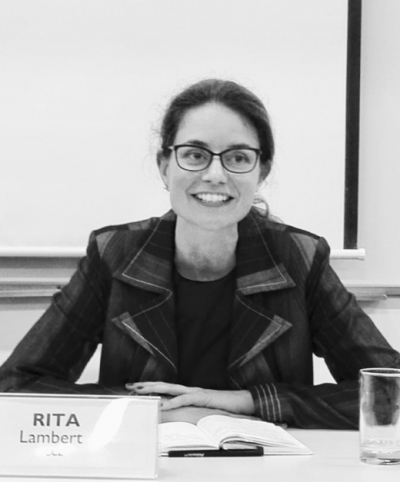DPU's Rita Lambert presents findings of doctoral research at a series of events in Lima
27 June 2019
During the week of the 14th to the 21st of June, Rita Lambert presented her work, opening the black box of peripheral urbanisation, interrogating planning, informality and the transversal logic in the production of urban land.

Addressing an academic audience, she presented the epistemological, methodological and empirical contributions of her 5-year doctoral research funded by the Economic and Social Research Council (ESRC) at the Universidad Nacional de Ingeniería (UNI) as well as in a dedicated conference at the Pontificia Universidad Católica del Perú (PUCP). She also presented and took part in a workshop bringing experts from different universities, NGOs, research organisations - UNMSM, CIDAP, CENCA, GRADE, IFEA, IMP, UCL and PUCP- and students across various faculties to discuss the relationship between planning, informality and urbanisation in contemporary Lima.
Moreover, she shared her findings with the inhabitants and leaders of the settlements where she conducted her research. The discussion was designed to interrogate the naturalised and internalised practices within the different consolidation stages of the urbanisation process that produce/exacerbate risk for inhabitants, and how these could be addressed.

Rita was also able to present to authorities at the ministerial and district municipality level making evident the unintended consequences that emerge from within the planning system and result in spatial outcomes that expose inhabitants to hazardous living conditions. She evidenced the different rationalities at play within institutions and officials that work against shared governmental objectives and are often conflicting and competing. In seeking to govern, she argued that the rules, regulations, standards and instruments paradoxically play a part in creating irrational spatial outcomes.
She demonstrated how planning procedures effectively results in the production and maintenance of grey spaces, difficult to control, that become fertile grounds for the illegal activities of land traffickers that in turn accelerate the urbanisation of the slopes. In doing so, she engaged the officials and technicians to reflect on the various procedures and practices within the planning apparatus of the State and discuss ways to curb land trafficking, manage areas delimited as 'high-risk' zones and work towards what many authorities have verbalise as a desirable goal: to plan with an integrated vision of the territory.
 Close
Close

